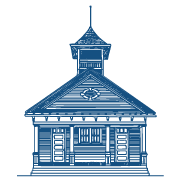Dear Bolinas-Stinson Families and Community,
Restorative Circles & Restorative Dialogue - Supporting our Students
Bolinas-Stinson staff and students are committed to using restorative circles and restorative dialogue to address daily conflicts as they occur. These practices help our students develop empathy and foster healthy peer relationships. Restorative circles help students and teachers to connect with one another and provide a safe place to discuss issues with their peers as they emerge. Restorative dialogue enables students to become active participants by helping them to recognize the harm they may have caused and take responsibility to make things as right as possible by following through with the agreements they make with other participants.
Restorative Practices - A positive model to frame our thinking, encourage productive dialogue, and repair harm.
We all learn by making mistakes. This point is extremely important to remember when we are talking about children as they navigate new social emotional experiences with each other. While it is important to recognize when a child is successful and praise acts of kindness or compassion to others, it is equally important to refrain from criminalizing behavior or shame children for their actions when they make mistakes. Always remind your child that just because they made a poor choice and possibly caused harm to someone, they are a good person and can work to repair the harm and learn from their actions.
New Language to Help Students Change Their Behavior
To help students articulate and understand the harm they may have caused, it is essential to be specific and identify the action, as well as, understand the effect of those actions. Help your child to move beyond the less descriptive and highly charged term “bully” and begin to identify the specific action that caused harm. For example rather than saying, “She bullied me,” a more descriptive statement would be, “She yelled at me.” Students can then begin to articulate how the behavior affected them and what they need from others to restore the balance of the relationship. In this manner, we can help our children to develop the language and skills to solve these interpersonal conflicts and lay the foundation for healthy future relationships.
Yard Supervisors Support Kids and Nurture Independent Problem Solving Skills
We know how important unstructured or free play is for child development. Free play builds creativity, imagination, social emotional skills, cognitive development, physical development, and problem solving skills. Snack and lunch recess are ideal for free play because there are many opportunities for students to explore and interact with each other and the world.
Our yard supervisors are kind, caring, and proactive during recess. They are actively engaged with our students and step in when necessary. I have watched as they help students discuss and navigate interpersonal disputes in a constructive manner using restorative dialogue prompts. It is important to remember that no playground is devoid of conflict. Working together productively and asking staff for help when needed, helps our students to build the interpersonal skills necessary to meet life’s challenges in the future.
Setting the Stage - Proactive Restorative Circles
The majority of our work with restorative practices is focused on proactive community building. We are using restorative practices at our school to promote a healthy culture of care and respect for ourselves and each other. All homeroom teachers conduct proactive restorative circles with their students to build positive relationships and establish a supportive environment that is fair, consistent, and democratic. This daily practice helps to prevent harm and conflict by promoting a sense of belonging, safety, and social responsibility within the school community. These circles provide opportunities for students to share feelings, ideas and experiences in order to build trust, mutual understanding, shared values, and shared behaviors.
School Wide Benefits of Restorative Practices - Positive Change
Students frequently approach me and other staff to ask for a restorative conversations, and are eager to seek a resolution together. I have had many restorative conversations with students and have noticed an increase in their problem solving skills when working out problems independently during recess. Productive student comments I have heard when conflict arises are:
- Let’s take a vote to see what the group thinks.
- Let’s make a rule that you can’t hit the ball like that.
- She should get a do-over because she wasn’t ready.
- It’s not fair when you do that, you need to stop.
Before we began using restorative practices, these situations would devolve into students arguing with each other and escalate. Now, students work to solve the problem constructively and are able to resume play quickly. These changes are a direct result of our ongoing restorative work.
Addressing and Healing Past Injury
Because our kids have been together with each other for so many years, they sometimes have unresolved incidents that happened years ago. Recently during an impromptu restorative conversation, several students discussed issues that they have been experiencing with each other and brought up events going back several grades. The dialogue was open and honest without blaming each other. Both students expressed that they didn’t know the effect of their past actions, and now that they were aware, they would take a different approach going forward. There is no time limit on healing old wounds. Restorative practices aren’t only for repairing current harm, but help us to mend old fences as well.
For more information about our school wide Restorative Practices program please click on the following links to my previous principal messages on 2/8/19 and 3/1/19. Feel free to contact me if you have any questions about our school wide Restorative Practices Program.
Warmly,
Michelle Stephens
Bolinas-Stinson School Principal
mstephens@bolinas-stinson.org

